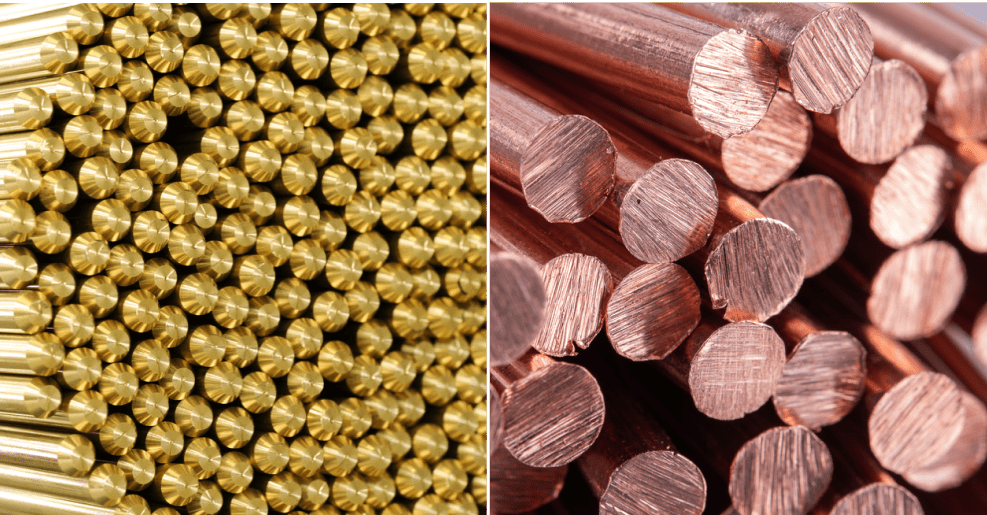

MAY 17, 2023
Copper and brass are often top contenders when selecting materials for various applications, boasting exceptional properties that make them highly valuable across industries ranging from construction and electrical engineering to plumbing and decorative arts. Here, RCM Recycling conducts a detailed comparison between copper and brass by exploring their composition, properties, applications, and potential advantages/disadvantages of both metals so that you can make an informed decision regarding which best meets your specific requirements. Knowing the difference between the two is essential for a scrap metal buyer.
Copper and brass belong to the same family of metals, brass being an alloy derived from copper. Copper has long been valued for its electrical conductivity and malleability; however, brass is an alloy composed primarily of copper and zinc (CZn alloy), wherein adding zinc changes its properties; this results in harder surface finishes with more excellent corrosion resistance as well as enhanced aesthetic qualities.
Copper has superior electrical and thermal conductivity, making it the go-to material for electrical wiring, heat exchangers, and various electronic components. Furthermore, its high ductility enables easy shaping into intricate designs, while its antimicrobial properties make it suitable for healthcare facilities and plumbing systems.
Brass is an alloy composed of copper and zinc, providing all the advantages associated with copper while adding mechanical properties enhanced by zinc's addition. Brass' corrosion resistance makes it suitable for marine environments and decorative uses, while its malleability and low melting point make casting, stamping, machining, or stamping ideal processes. Furthermore, its wide array of color variations provided by changing zinc content gives this metal added visual interest for architectural elements and decorative objects alike.
Copper has numerous applications within electrical systems, from power generation and transmission, communications, and electronic devices to heat exchangers and radiators, plumbing, HVAC systems, and refrigeration. Copper's excellent thermal conductivity also makes it invaluable. Due to its antimicrobial properties, copper surfaces are widely employed within healthcare facilities to reduce the transmission of bacteria and viruses.
Brass' corrosion resistance and aesthetic versatility have led it to be used extensively in musical instruments like trumpets, trombones, and saxophones, decorative art sculptures, ornaments, and architectural elements; plumbing fixtures, valves fittings frequently incorporate brass due to its durability and ease of fabrication; while marine industry components relying on its resistance against saltwater corrosion use brass propellers portholes and shipbuilding components made from brass as well.
Its Copper's high electrical and thermal conductivities and antimicrobial properties make it an excellent material choice for many applications, while its ductility facilitates easy installation and repair. Unfortunately, however, copper is susceptible to corrosion in certain environments which requires protective coatings or alloys to combat. Furthermore, its higher cost can make theft an additional threat.
Brass can provide superior mechanical properties to pure copper, such as greater strength and hardness, corrosion resistance, aesthetic appeal, and electrical conductivity. Unfortunately, its lower electrical conductivity limits its use in certain electrical applications and incurs additional costs due to zinc costs.
At RCM Recycling, a scrap metal company, we prioritize providing comprehensive solutions for your copper and brass scrap metal recycling needs. Leveraging our experience in this field, we can assist in managing metal waste effectively while contributing to a more eco-friendly future. Our advanced recycling processes guarantee that copper and brass materials are recycled responsibly to reduce environmental impact, with the convenient collection and transportation services making metal waste disposal simple while adhering to industry regulations—partner with RCM Recycling to maximize resource utilization while contributing to conserving precious metals and reducing carbon emissions. Rely on us as your reliable recycling partner as we prioritize environmental stewardship and the efficient recovery of valuable materials.